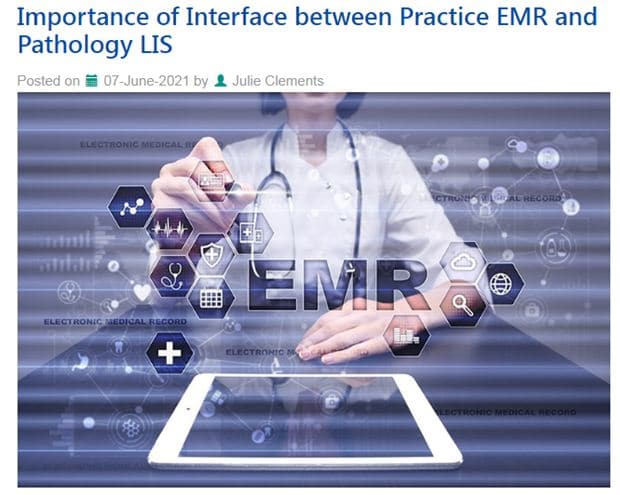When it comes to effective physician-patient communication, time is of utmost importance. Even with EHRs, many providers are utilizing medical transcription services to save time and effort and ensure more quality time with their patients and better patient care. The medical profession is not just about treating illness, it is also about providing optimal patient care. Effective care and consideration can have a positive effect on health outcomes. Efficient communication between physicians and patients is necessary to ensure the patient understands his/her health issues and the care plan recommended. When dealing with patients, physicians are often faced with the dilemma of talking to them about death and dying.

A typical real-life example of this predicament was highlighted in a recent article in Kaiser Health News (KHN). Lynn Black’s mother-in-law was rushed to the intensive care unit of a hospital due to shortness of breath. She suffered from lupus and lung cancer. After examining the unresponsive patient, the cardiologist informed the family that the patient’s heart was fine, later an oncologist said that the substances infiltrating her lungs was not cancer but an infectious disease. This provided some relief for family members but later Black, a doctor herself, understood that the doctors were avoiding the truth. So, it became her duty to tell her family that her mother-in-law was not going to make it out of the hospital alive. Black said that this was a common problem and the doctors are focused on fixing each ailment that they are not addressing the big picture.
Though physicians are trained to provide healthcare, they receive little guidance regarding communicating with dying patients and their families. That is why most physicians find it difficult to engage in end-of-life discussions. Physicians must understand that good communication can help reduce fears, minimize pain and suffering and ease the process of death for terminally ill patients. On the other hand, lack of communication could lead to substandard care, and considerable physical and mental anguish to patients and their families. Since most patients are interested in discussing end-of-life care with their physicians, it is important that physicians accept the responsibility to begin timely dialogue with their patients.
Lack of training is to blame for the physicians’ difficulty in handling the subject. When physicians are not trained about how to approach patients and their families regarding end-of-life decisions, it is almost impossible to provide the care patients want and need. When there is no strong connection between the physician and patient, when the physician has not spent sufficient time explaining the options to the dying patient, hospitals follow the standard protocol. This involves putting the patient on life-support machines, which may not always be the best option even though often provided at the insistence of the patient’s family members.
- Emotional damage to patients and their family members may result from choosing to opt for intensive management of patients with poor prognosis.
- Significant policy implications could be there – studies show that at least 25% of Medicare payments go to patients in the last year of life, with one-third of that amount spent often on clinical services with negligible benefits.
Incorporating the required courses wherein students are provided time and space to think about the limitations they face when communicating with patients with terminal diseases into the medical curriculum is one way of addressing this major problem. Senior physicians can guide younger doctors regarding how to handle such difficult situations. Now, hospitals and hospice programs are introducing training programs across the country.
Clinicians at Massachusetts General Hospital in Boston are getting trained to talk to seriously ill patients about their goals, values and progress. The doctors are using script based on the Serious Illness Conversation Guide created by Dr. Atul Gawande and Dr Susan Block.
At Mass General, Dr Juliet Jacobsen who serves as medical director for the Continuum Project, provides a large-scale effort to quickly train clinicians to have these conversations, document them and share what they learn with one another.
When a doctor’s message shifts from “everything is great” to “she is dying”, the patients may not be ready to accept the fact or adjust to the bad situation. So, to address that problem Jacobsen suggests language that clinicians discuss a prognosis without asserting certainty such as “I worry the decline we have seen is going to continue,” or, “I worry something serious may happen in the next fewmonths.” After the training, the team plans to follow up with doctors to ensure that they are having conversations with the patients.
Ariadne Labs has teamed up with VitalTalk, a communication training company and the Centre to Advance Palliative Care to rapidly disseminate the Serious Illness Conversation Guide across the country. Their objective is to train 200 trainers by June 2019. Oncologists at the University of Rochester Medical Center in New York observe other physicians having conversations with patients facing terminal illness. In Arizona, administrators of Hospice of the West in Phoenix hold regular training sessions at staff meetings.Hospitals and Health Networks say that the Florida Hospital Association has partnered with the Institute for Healthcare Improvement to provide hospitals and communities with training that is designed to generate end-of-life care discussions early on. The program aims to help patients die in circumstances and surroundings that they choose.
More doctors are engaging in end-of-life counselling sessions with Medicare patients as well. CMS data shows that in 2016, the first-year doctors could charge Medicare for the service, and nearly 14,000 providers billed around $35 million, including nearly $16 million paid by Medicare; or advance care planning conversations for about 223, 000 patients from January through June.
As a responsible medical transcription outsourcing company serving physicians, we are fully aware that physicians have a responsibility to start and continue an open communication with each patient. They must understand and address the values that are important for patients and communicate frankly with them about their disease, dying, and death. Lack of such communication skills could prove damaging to patients and prevent them from receiving optimal end-of-life care.


